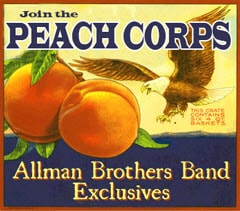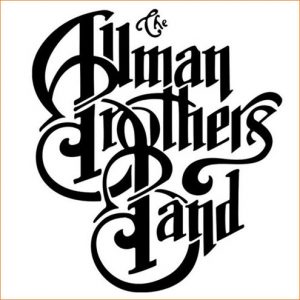By: Dean Goodman
For Reuters
10/3/2003
Tom Dowd, a physics wiz who helped develop the atomic bomb during the 1940s, went on to create a series of bigger explosions that rocked the world.
No one was hurt in the process. For Dowd found his calling as the engineer or producer for such acts as Charlie Parker, Dizzy Gillespie, Ray Charles, the Drifters, Aretha Franklin, Otis Redding, Eric Clapton, Rod Stewart, Lynyrd Skynyrd and the Allman Brothers Band.
Before he died last October, aged 77, Dowd participated in a documentary that will premiere on cable’s Sundance Channel on Friday at 9 p.m. Directed and produced by Mark Moormann, “Tom Dowd and the Language of Music” brings the razor-sharp music man out from the control booth into the spotlight as he reminisces about his life and times.
Clients such as Clapton and Charles, and peers like his Atlantic Records bosses Ahmet Ertegun and Jerry Wexler, offer effusive praise for Dowd, who apparently achieved the impossible by spending a lifetime in the entertainment business without creating any enemies.
Even though his name can be found on such records as Derek and the Dominos’ “Layla,” Franklin’s “Respect” and Lynyrd Skynyrd’s “Gimme Back My Bullets,” Dowd proudly noted in the documentary that he was not a multimillionaire, as 90 percent of his jobs were for a salary, but he remained friends with every one of his artists.
Dowd, resembling Martin Scorsese in both look and verbal intensity, did more than turn knobs at a console. Inspired by guitarist Les Paul, he pioneered the use of cutting-edge eight-track recorders in the late 1950s. He was stunned when visiting England a decade later to find that the Beatles were still using three- and four-track machines.
Something of a “gearhead,” Dowd worked on the Manhattan Project at New York’s Columbia University from 1942 to 1946, and witnessed nuclear tests in the South Pacific. He had hoped to become a nuclear physicist research specialist, but his accumulated knowledge was classified. Instead, he got a job in a recording studio and established himself as a wunderkind.
A SCARY CAT
A musician himself, Dowd won the trust and respect of some occasionally hostile artists by taking on the role of a father figure, psychologist or coach.
“When I first met him, I thought he talked in numbers, and he really scared me,” Gregg Allman, singer and keyboardist with the Allman Brothers Band told Reuters. “My brother (late guitarist Duane) said, ‘Hey look, don’t be afraid of him. He’s a pussycat. He loves you, he digs you, man, just as much as you dig him.’
“I said, ‘I don’t dig him. I’m scared of him, man!”‘
Dowd produced virtually every Allman Brothers Band album from their second effort, 1970’s “Idlewild South,” onward. When Duane died in a 1971 motorcycle crash, it was up to Dowd to rally the band for the double album they were working on at the time, “Eat A Peach.”
“He was my friend, and he was my friend for a long time. There’s not many people like that roaming the Earth,” Allman said.
The documentary includes vintage performance clips of Cream, Booker T. and the MG’s, Redding and Franklin. The Queen of Soul also is shown in the studio working up the 1968 single “Ain’t No Way” while seated at the piano surrounded by Dowd and her sister, Carolyn, who wrote the tune.
Perhaps the highlight is a contemporary scene where Dowd is seated at a console for the playback of “Layla,” the 1970 tale of unrequited love that Clapton recorded with his makeshift band, Derek and the Dominos. He isolates the dueling guitar tracks, Duane Allman’s bottleneck blues-influenced lead and Clapton’s melodic string-bending, and gushes about their “exquisite technique and touch” as if he is hearing the tune for the first time.



